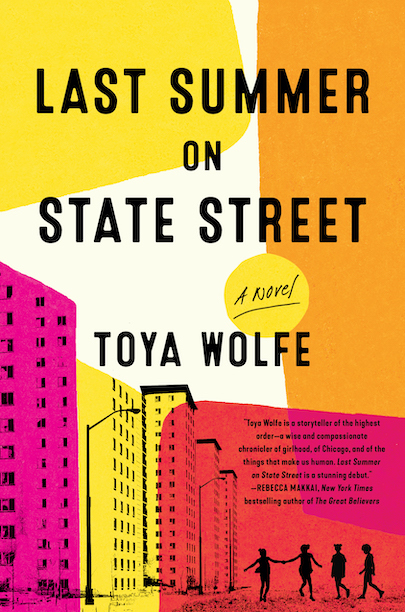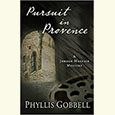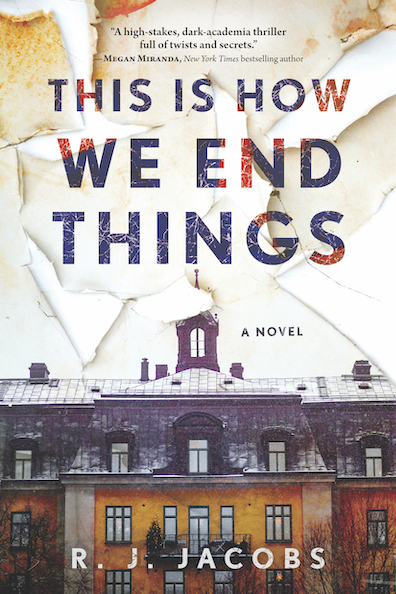Choice Poor
Julia Franks’ The Say So recalls a time when unwed mothers were hidden
Julia Franks’ new novel The Say So reminds us that, in some ways, expectations for young women in the 1950s weren’t so different from today: to look pretty and be desired. Back then, society expected young men to chase skirts and occasionally get lucky — boys will be boys, after all — but if a young woman succumbed to desire and became pregnant before marrying, the fault was hers alone.
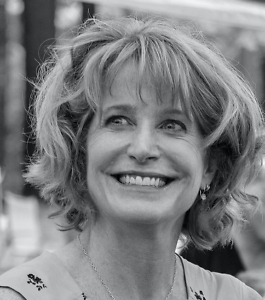 Those with resources and families they could lean on were quietly sent to homes for unwed mothers, the kind with “damask, sagging furniture, faded cabbage roses climbing the wallpaper,” Franks writes. Young women in these places were often systematically brainwashed into believing that they had become pregnant because of a psychiatric defect that rendered them in need of rehabilitation.
Those with resources and families they could lean on were quietly sent to homes for unwed mothers, the kind with “damask, sagging furniture, faded cabbage roses climbing the wallpaper,” Franks writes. Young women in these places were often systematically brainwashed into believing that they had become pregnant because of a psychiatric defect that rendered them in need of rehabilitation.
In The Say So, set in 1959 Charlotte, North Carolina, high school senior Edie Carrigan’s illegitimate pregnancy is all the more complicated because her boyfriend is Jewish. Carrigan’s family is Catholic, but since moving to Charlotte from Atlanta, they attend the Methodist church “so as to blend.”
Aside from Edie’s boyfriend Simon Bloom, four years her senior and destined for medical school, her support system is primarily her unlikely friend Lucille Waddell, or Luce, a Central High debate team phenom who comes from a broken home and refuses to live according to the expected roles for young women. “She could have been pretty, sort of, if she smiled and did something with her hair,” Edie observes. Shortly after the two meet, Edie stays after school to watch her new friend practice a political debate, thereby witnessing Luce’s “desire to accomplish, and then to accomplish something else,” Franks writes.
Despite Edie’s more conventional approach to teenage life, which ultimately finds her spending increasing amounts of time alone with Simon in his photography darkroom, she and Luce become each other’s closest confidante. Edie gets pregnant and is sent away and given a new name (“Susannah”) in her group home, but even then, the two friends are unwavering in their loyalty to one another — until Edie gives birth, refuses to sign the relinquishment documents, and shows up on Luce’s doorstep.
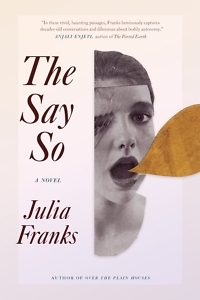 What follows in the narrative is complicated by the characters’ pride, imperfect memory, and a sequence of events Edie misunderstands. It is only when the two women are well into late middle age, and Luce’s daughter Meera becomes unexpectedly pregnant, that Edie fully processes the loss of her baby and the two friends try to untangle what led to their broken bond. Their attempt to find meaning in heartache and Edie’s painful confusion about what she did so wrong inspire some of Franks’ most poignant writing: “It’s just that I grew up with this idea that the only thing required of girls was that you look pretty and be nice to people,” Edie reflects to Meera. “But none of us knew how impossible that bargain was. I sure didn’t. For half my life I was dumb enough to keep worrying away at both those things. Being nice and being pretty. So dumb. So impossible.”
What follows in the narrative is complicated by the characters’ pride, imperfect memory, and a sequence of events Edie misunderstands. It is only when the two women are well into late middle age, and Luce’s daughter Meera becomes unexpectedly pregnant, that Edie fully processes the loss of her baby and the two friends try to untangle what led to their broken bond. Their attempt to find meaning in heartache and Edie’s painful confusion about what she did so wrong inspire some of Franks’ most poignant writing: “It’s just that I grew up with this idea that the only thing required of girls was that you look pretty and be nice to people,” Edie reflects to Meera. “But none of us knew how impossible that bargain was. I sure didn’t. For half my life I was dumb enough to keep worrying away at both those things. Being nice and being pretty. So dumb. So impossible.”
It is also impossible to consider this novel outside the context of the Supreme Court’s June 2022 opinion that overturned Roe v. Wade. As Franks notes in her “Notes and Sources” section at the end of the novel, people such as Justices Amy Coney Barrett and Samuel Alito have long made the case that women need not choose abortion when adoption is an option. It is a choice that Franks herself made in the 1980s. “I was pro-choice and unreligious,” she writes. “But for complicated reasons, many of them naïve and cocksure, I decided to bring my child to term and relinquish him for adoption.”
The difference, of course, between Franks’ own experience and Edie’s is that Franks had a choice. Even so, she describes the relinquishment process as devastating and ventures that, if she were faced with the same circumstances again, she would choose an early abortion — assuming she could get one. “Women who choose adoption are not so different from women seeking abortion rights,” Franks writes. “All of them, all of us, are fighting for the same thing, the say-so over our own bodies and decisions.”

Liz Garrigan is the former editor of the Nashville Scene and now lives in Bangkok, Thailand.
